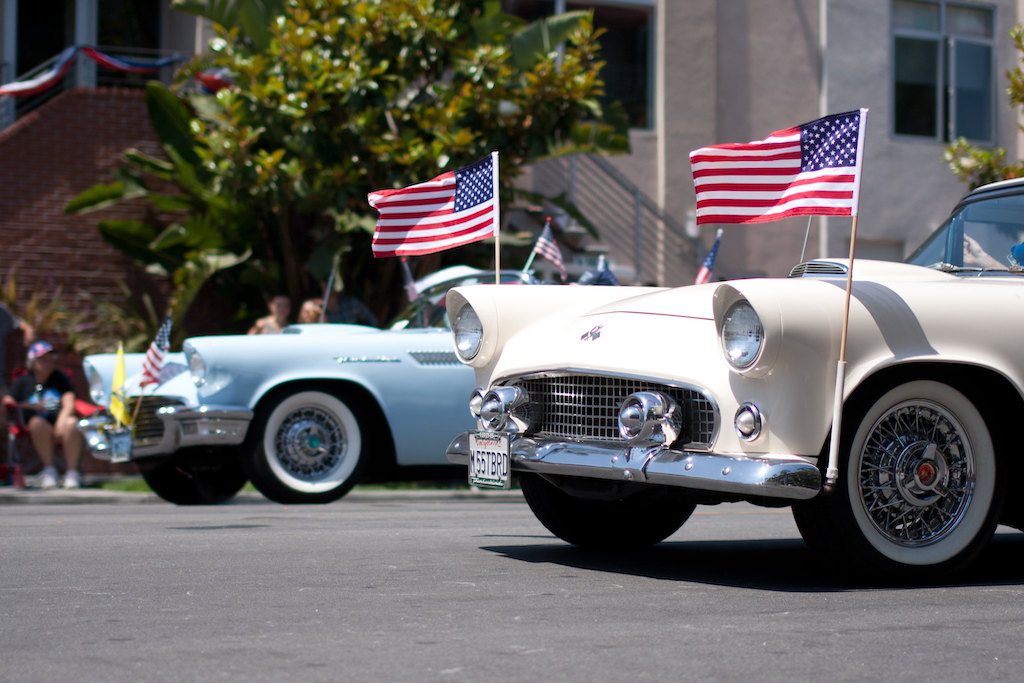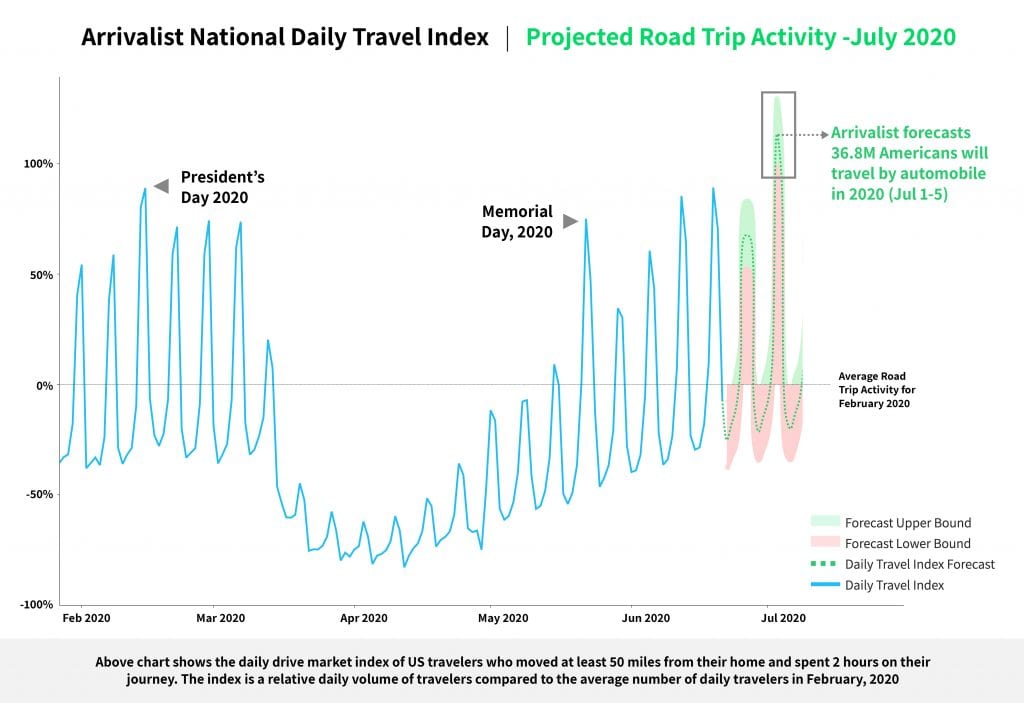Skift Take
The pandemic shows no signs of slowing down in the U.S., but the Arrivalist's Daily Travel Index shows that Americans are taking road trips regardless.
An estimated 37 million Americans are expected to take a road trip this July 4th weekend, the biggest road trip event so far this year.
It’s been two months since the Arrivalist — a location intelligence platform for the travel industry — launched its Daily Travel Index, which predicts and tracks road trips taken by Americans.
As the United States approaches a holiday weekend with coronavirus cases surging and reopenings being paused in some states, that index is not predicting that Americans will stay home.
The July 4th holiday estimate from the Arrivalist means the travel index will likely pass 100 percent for the first time since it began, meaning that 100 percent more travelers will take road trips compared to the average day in February, before the pandemic’s travel restrictions began. On a year-on-year basis, the figure will be down 11 percent from the 41.1 million Americans who hit the road on July 4 weekend in 2019. The index defines a road trip as one “where the user has traveled a minimum of 50 miles and spent a minimum of two hours at the destination.” Frequent trips for purposes including cargo and commuting are excluded.
Meanwhile, the U.S. just hit another grim record: 50,000 new cases reported in a single day. Indeed, with the news changing every few hours — case count spikes, protests, civil unrest, re-openings being paused — isn’t predicting anything something of a fool’s errand? Cree Lawson, founder and CEO of the Arrivalist told Skift that since the index launched, the road trip has proved appealing to Americans despite headlines changing by the day.
“We’ve seen remarkable resilience in American road trips,” Lawson said. “We get questions daily: Are you changing your prediction because this state lockdown? Or because New York state banned travel from Florida? Those things influence travel but they don’t dictate American travel.”
Lawson added that protests and civil unrest that have taken place across the nation since early June have caused a “dip in individual markets [but] the trend across the country did not waver.”
The Arrivalist makes its index’s findings available not only to its tourism board clients, but also to the wider travel industry. (Skift’s Recovery Index also uses it as one input.) The premise that the index was launched with — that travel’s rebound would be driven by access to drive markets — has certainly proven prescient. Lawson told Skift that this new reality has affected destinations differently.
“Urban centers with events-driven industries have had a disproportionately negative impact from Covid,” Lawson said. Meanwhile, destinations with “any combination of remote attractions and attractions by the water, if they’re open, are having a disproportionate beneficial impact.”
The travel industry is not done facing uncertainty; indeed, there is no guarantee the second half of 2020 will be any better than the first. But Lawson feels confident that road trips will remain an enduring part of the months ahead.
“It’s easy to look at the consumer through the lens of pandemic and protest but we try to look at the raw data, people’s actual behavior, not how it’s reflected,” Lawson said. “Travel behavior at least as far as road trips go is returning and robust — not where it was — but it’s returning.”
The Daily Newsletter
Our daily coverage of the global travel industry. Written by editors and analysts from across Skift’s brands.
Have a confidential tip for Skift? Get in touch
Tags: coronavirus, road trips, tourism
Photo credit: A Fourth of July parade. Stephen Kruso / Flickr

